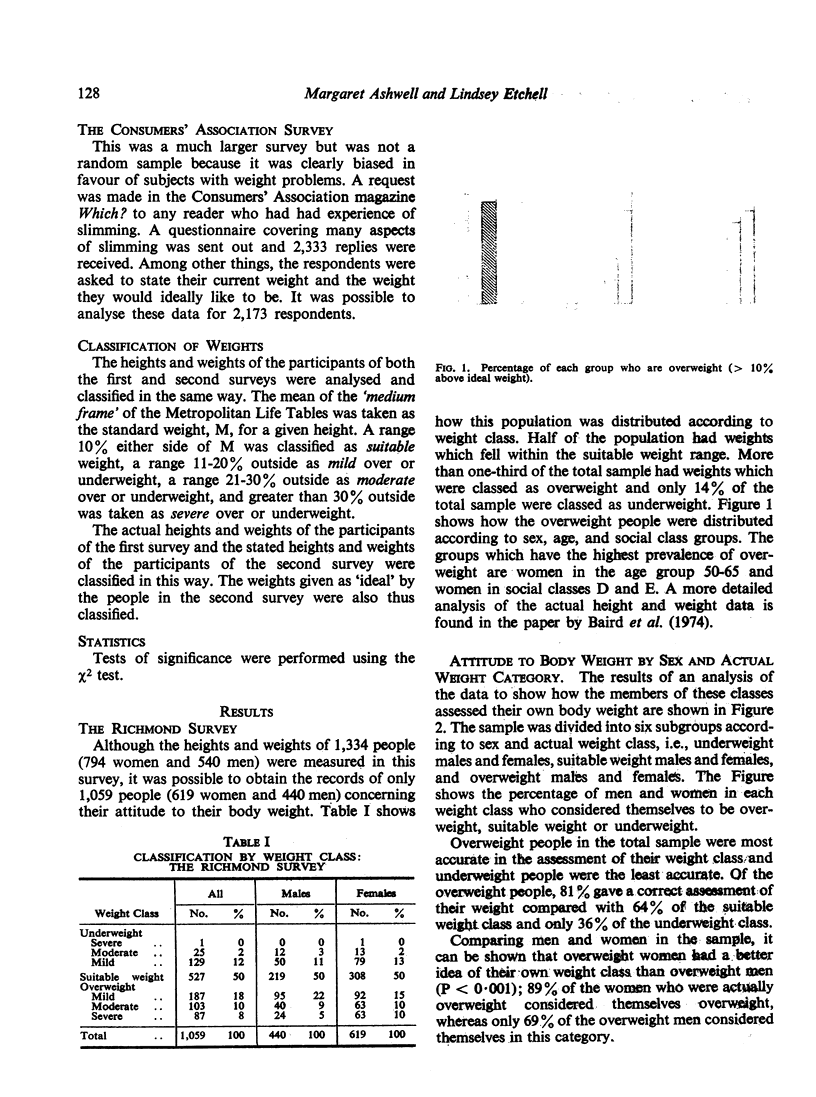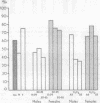Abstract
A random height and weight survey in a London Borough showed that overweight people were most accurate in the assessment of their weight and underweight people were the least accurate. Overweight women were more aware of their size than overweight men.
Overweight women had made more attempts to lose weight than overweight men. There were no significant differences between overweight women of different age or class groups. Men in social classes A and B were more likely than men in other groups to have tried to lose weight.
These results show that the high prevalence of overweight associated with older and lower social class women cannot be explained by the fact that they are unaware of their size and only partly explained by the fact that they have not made attempts to lose weight.
The results of a second survey conducted among Consumers' Association members showed that the weights considered as ideal by these people corresponded very well with the ideal weights given by life insurance tables.
Full text
PDF





Images in this article
Selected References
These references are in PubMed. This may not be the complete list of references from this article.
- Montegriffo V. M. Height and weight of a United Kingdom adult population with a review of anthropometric literature. Ann Hum Genet. 1968 May;31(4):389–399. doi: 10.1111/j.1469-1809.1968.tb00572.x. [DOI] [PubMed] [Google Scholar]
- Osancová K., Hejda S. Nutrition and attitude to obesity. Epidemiological survey in a population with a high prevalence of obesity. Rev Czech Med. 1970;16(3):131–139. [PubMed] [Google Scholar]
- Silverstone J. T. Psychosocial aspects of obesity. Proc R Soc Med. 1968 Apr;61(4):371–375. doi: 10.1177/003591576806100425. [DOI] [PMC free article] [PubMed] [Google Scholar]




